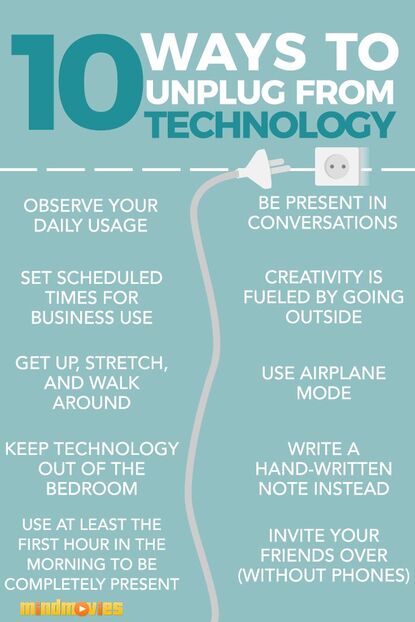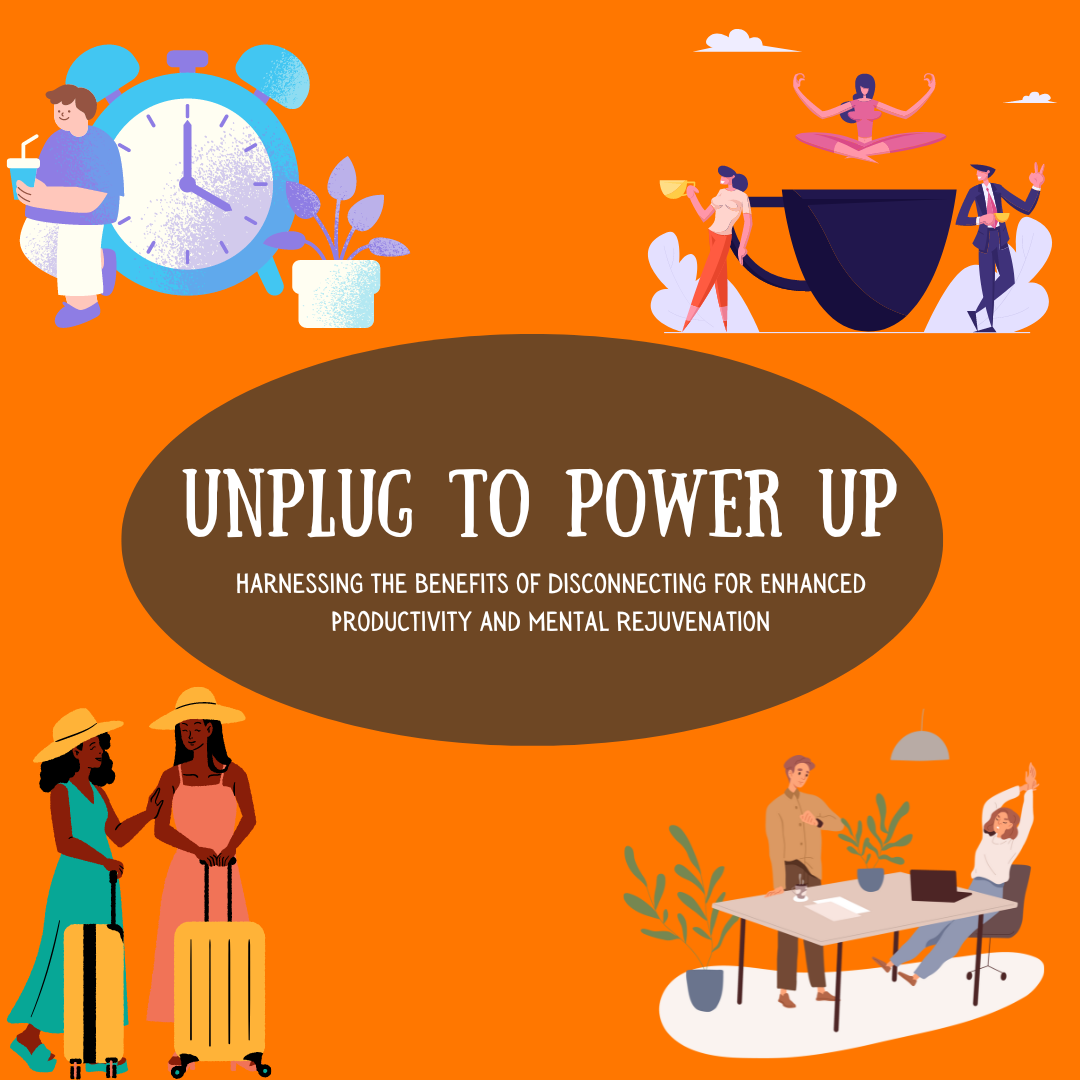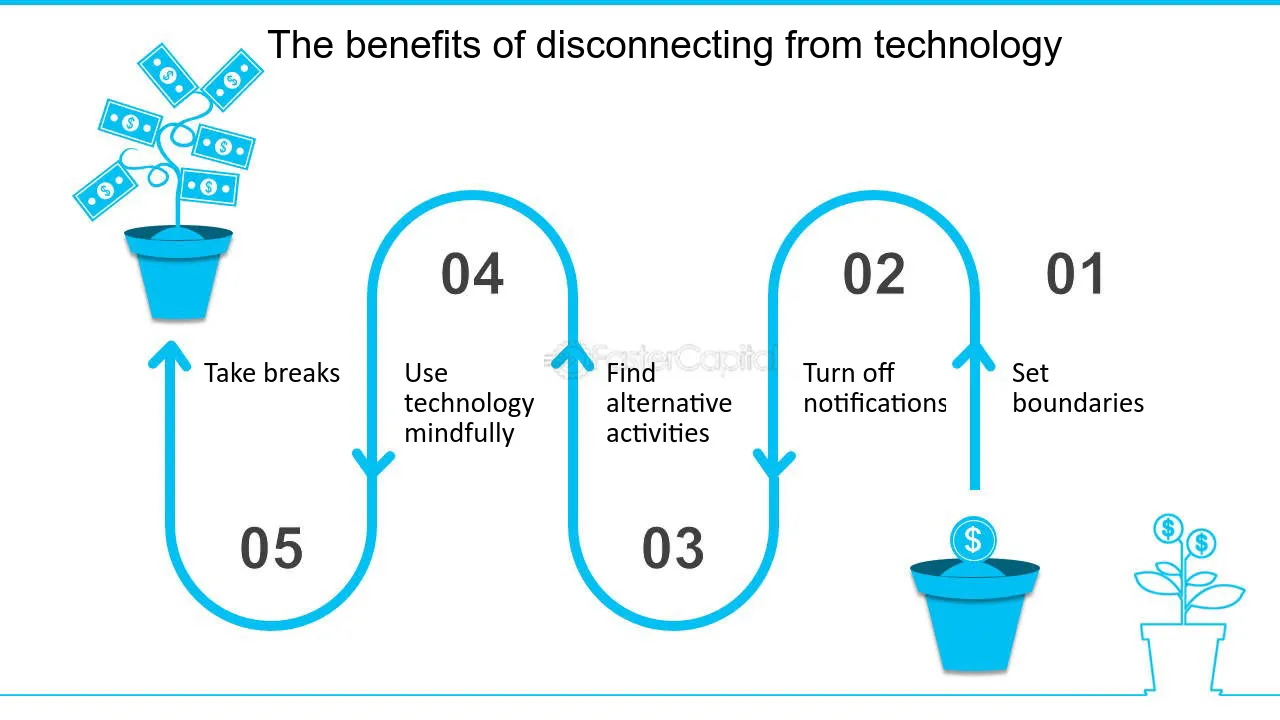The Benefits of Disconnecting: How Taking a Break from Technology Can Enhance Your Well-being
In our hyper-connected world, it’s easy to become consumed by constant emails, social media updates, and the ever-present pull of digital devices. The advancement of technology has undoubtedly made our lives more convenient, but it has also brought about new challenges related to stress, burnout, and mental fatigue. This is where the power of disconnecting comes in. By taking intentional breaks from technology, you can restore your mental clarity, increase productivity, and improve your overall health.
In this article, we’ll dive deep into the benefits of disconnecting from the digital world and how incorporating more offline time can help you recharge physically, mentally, and emotionally.

Why Disconnecting from Technology is Essential
Before exploring the specific benefits of disconnecting, let’s first understand why it’s necessary. We live in an age where information is constantly being thrown at us, often without respite. Our phones, computers, and other devices are always within arm’s reach, leading to a state of perpetual stimulation.
While staying connected has its advantages, it can also:
- Exhaust your mental resources: Constant multitasking and checking notifications can deplete your focus and cognitive function.
- Heighten stress and anxiety: Social media comparisons, work pressures, and information overload can overwhelm the mind.
- Harm physical health: Prolonged screen time can contribute to poor posture, eye strain, and sleep disturbances.
Therefore, disconnecting is not just a luxury, but an essential practice for maintaining a balanced and healthy lifestyle. Now let’s take a closer look at the profound benefits of disconnecting from technology.
1. Stress Reduction and Mental Clarity
One of the most significant benefits of disconnecting is the reduction of stress. When you’re constantly plugged into the digital world, your brain is overloaded with information, leading to cognitive fatigue and mental clutter. Taking a break from your devices allows you to clear your mind and focus on what truly matters.
How Disconnecting Can Help:
- Reduces overstimulation by limiting exposure to constant notifications and alerts.
- Promotes mental rejuvenation, allowing you to come back to tasks with a fresh perspective.
- Helps lower cortisol levels, which are linked to stress and anxiety.
When you disconnect, you create space for clarity, creativity, and a sense of calm that can be hard to achieve amidst the constant noise of technology.

2. Improved Sleep Quality
Another compelling reason to disconnect is the improvement in sleep quality. Studies have shown that excessive screen time, especially before bed, can interfere with the production of melatonin, the hormone responsible for regulating sleep. This can lead to difficulty falling asleep, reduced sleep quality, and daytime fatigue.
How Disconnecting Improves Sleep:
- Reducing blue light exposure: Smartphones and computers emit blue light, which disrupts melatonin production and keeps you awake. Taking a break from screens, particularly in the evening, can help your body naturally transition to sleep mode.
- Mental relaxation: When you step away from technology, you can engage in more relaxing activities, such as reading, meditating, or taking a bath, which can help prepare your mind and body for rest.
Making a habit of disconnecting, especially in the hours leading up to bedtime, can significantly improve both the quality and quantity of your sleep.
3. Boosted Productivity and Focus
Although technology is often used as a tool to enhance productivity, excessive use can have the opposite effect. Multitasking, constantly switching between tasks and devices, can distract you and lower your productivity levels. Disconnecting allows you to focus on a single task at a time, boosting your efficiency and performance.
How Disconnecting Helps You Focus:
- Eliminates distractions: By turning off notifications and taking time away from devices, you reduce interruptions that hinder your work.
- Promotes deep work: When you disconnect from digital distractions, you’re able to enter a state of deep focus and achieve more in less time.
- Improves decision-making: With fewer distractions, you’re able to think clearly and make decisions with greater clarity.
Disconnecting from technology enables you to complete tasks more efficiently, without the constant barrage of distractions.
4. Strengthened Relationships
We live in a time where digital communication is often a substitute for real-world interaction. While texting and social media can help us stay connected, they don’t compare to the emotional connection and bonding that occurs when spending time face-to-face with loved ones. Disconnecting allows you to invest in your relationships, fostering deeper, more meaningful connections.
How Disconnecting Enhances Relationships:
- Quality time: When you’re not glued to your phone or computer, you can truly focus on the people around you, creating stronger bonds.
- Improved communication: Face-to-face interactions are more meaningful and effective than text messages or emails, as they allow for better understanding and empathy.
- Better emotional connections: Disconnecting gives you the opportunity to show up fully for those you care about, making them feel valued and heard.
Taking time away from your digital devices can help you nurture both personal and professional relationships, leading to greater emotional well-being.

5. Enhanced Creativity and Innovation
Constant digital consumption can stifle creativity. When you step away from your devices, you give your mind the chance to relax and wander, leading to fresh ideas and creative breakthroughs. Disconnecting allows you to tap into your imagination and explore new possibilities.
How Disconnecting Sparks Creativity:
- Mental space: Without the constant influx of information, your brain has room to generate new ideas and think critically.
- Increased inspiration: Engaging in offline activities like hiking, reading, or journaling can expose you to new experiences and stimulate creative thinking.
- Reduced burnout: Disconnecting gives your mind a chance to rest and reset, preventing creative exhaustion and helping you return to work with renewed inspiration.
By disconnecting, you create the mental conditions necessary for creative thinking and problem-solving.
6. Better Physical Health
Prolonged screen time can have detrimental effects on your physical health. From poor posture and eye strain to the sedentary lifestyle that often accompanies technology use, spending too much time online can take a toll on your body.
How Disconnecting Benefits Physical Health:
- Reduces eye strain: Spending hours looking at screens can cause eye fatigue, dry eyes, and headaches. Taking regular breaks can help prevent these issues.
- Encourages physical activity: Disconnecting from technology opens up time for outdoor activities, exercise, and movement, which are vital for overall health.
- Promotes better posture: Constant use of devices can lead to poor posture, causing back and neck pain. Disconnecting and engaging in physical activities can improve posture and relieve discomfort.
Incorporating time away from screens into your daily routine can have a positive impact on your physical well-being.

How to Disconnect from Technology
If you’re ready to embrace the benefits of disconnecting, here are a few practical steps to help you get started:
1. Set Boundaries for Screen Time
- Establish specific times for checking emails or social media and stick to them.
- Turn off non-essential notifications to minimize distractions.
2. Engage in Offline Activities
- Dedicate time to hobbies that don’t require technology, such as reading, cooking, or exercising.
- Spend more time outdoors, whether it’s hiking, biking, or simply walking in nature.
3. Unplug Before Bed
- Set a rule to stop using all devices at least one hour before bedtime to improve your sleep quality.
- Use this time to unwind with relaxing activities like meditation, stretching, or listening to music.
4. Take Digital Detox Days
- Designate specific days or weekends as “digital detox” days where you disconnect entirely from your devices. Use this time to reconnect with yourself, your loved ones, and the world around you.
Frequently Asked Questions (FAQs)
Q1: How long should I disconnect from technology?
A1: The duration depends on your needs. Start with a few hours a day, then gradually increase it. Ideally, aim for at least one day a week of complete disconnection.
Q2: Will disconnecting really improve my productivity?
A2: Yes, by eliminating distractions and fostering deep work, you’ll find that you can accomplish more with better focus and efficiency.
Q3: Is it necessary to disconnect completely from technology?
A3: While a complete disconnect can be beneficial, even short breaks from technology can help reduce stress, improve focus, and boost creativity.
Q4: What activities should I engage in during my digital detox?
A4: Use your detox time for activities that nourish your mind and body, such as reading, exercising,
spending time with loved ones, or enjoying nature.
Conclusion
In today’s fast-paced digital world, taking time to disconnect from technology is more important than ever. Whether you’re looking to reduce stress, improve your relationships, boost creativity, or enhance physical health, the benefits of disconnecting are vast and far-reaching. By intentionally setting aside time to unplug, you give yourself the opportunity to recharge, refocus, and live a more balanced, fulfilling life.
Start your digital detox today and experience the transformative benefits for yourself. Your mind, body, and relationships will thank you.

